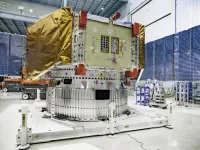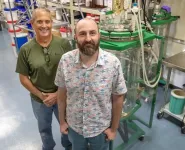The next generation of the BARDA Accelerator Network builds on lessons learned from the first iteration of the network and the COVID-19 pandemic regarding the importance of agile and scalable mechanisms to support innovation. This newly launched network of five hubs across the U.S. is focused on supporting innovations in diagnostics/medical devices, therapeutics/vaccines, digital health tools, special populations and enabling technologies. Together, these five hubs will foster the growth of the innovation ecosystem and partner with entrepreneurs, innovators and companies to develop adaptable, scalable, sustainable, accessible and equitable health security solutions.
The pediatric-focused hub will be known as Special Populations Acceleration, Research and Knowledge (SPARK) for Innovations in Pediatrics. Children’s National will lead the hub with its SPARK partners: BioHealth Innovation, Consortia for Improving Medicine with Innovation and Technology (CIMIT) at Mass General Brigham, and University Hospitals Rainbow Babies and Children’s. Industry strategic partner Johnson & Johnson Innovation – JLABS (JLABS) – has a Washington, D.C., site co-located at the Children’s National Research & Innovation Campus that serves as the hub for BLUE KNIGHT™, a joint initiative between JLABS and BARDA aimed at advancing the innovation and incubation of high-potential science and technologies that may improve health security and response.
“We are thrilled to have been selected to lead the BARDA Accelerator Network Special Populations Hub with a focus on pediatric and immunocompromised population, a role that underscores our commitment to advancing the health and safety of children during public health emergencies. To tackle the complex challenges of pediatric medical countermeasures (MCMs), we have assembled an exceptional team of pediatrician-scientists. Their expertise will be instrumental as we partner with BARDA on this vital mission, ensuring that our most vulnerable populations receive the care and protection they deserve," said Kolaleh Eskandanian, Ph.D., M.B.A., P.M.P., vice president and chief innovation officer at Children’s National and principal investigator of SPARK Innovations in Pediatrics, the BARDA Accelerator Network Hub for Special Populations.
Julia Finkel, M.D., professor of anesthesiology and critical care, and head of pain medicine research at the Sheikh Zayed Institute for Pediatric Surgical Innovation, will be serving as the co-principal investigator of SPARK. An entrepreneur and Founder of AlgometRx, Dr. Finkel brings a wealth of expertise in life sciences, clinical trials and academic entrepreneurship.
SPARK Hub seeks to accelerate innovations that can detect, prevent or respond to the medical consequences of a health security threat for children. SPARK’s scope includes drugs, biologics, devices, diagnostics and digital health solutions that improve prevention, readiness and response in health security situations.
“One of the critical challenges we face in safeguarding our children during public health emergencies is the limited MCMs specifically approved for pediatric use,” Dr. Eskandanian said. “This creates significant ethical, legal and operational dilemmas when considering the use of untested or off-label MCMs for our youngest and most vulnerable populations.”
Children's National joins four other hubs, each focusing on a different area, comprising the BARDA Accelerator Network. Two additional hubs also announced today are: the Enabling Technologies Hub, led by MedTech Innovator, focused on the acceleration and development of technologies to improve biomanufacturing, drug development, and clinical support; and the Digital Health Hub, led by MATTER, focused on the development and application of digital health tools to empower people to prepare for and respond to health security threats and improve the continuum of clinical care. Two hubs were announced in May 2024: The International Consortium for Research, Engineering, Acceleration of Technology Excellence (I-CREATE), led by University Lab Partners, focused on medical diagnostics and devices; and the Vaccine Innovation and Therapeutics Acceleration Launchpad (VITAL), led by Start2 Group, focused on therapeutics and vaccines innovation."
Children’s National has in-depth experience in leading nonprofit accelerator programs to spur innovation in children’s healthcare and is currently serving its 11th year as leader of one of five pediatric consortia funded by the U.S. Food and Drug Administration: the Alliance for Pediatric Device Innovation, which focuses on bringing patients medical devices specifically evaluated and labeled for use in the pediatric population. In addition, Children’s National is also one of two leading hospital sites for the Pediatric Pandemic Network (PPN), which aims to empower healthcare systems and communities to provide high-quality, equitable care to children every day and in crises. The Health Resources and Services Administration, a part of HHS, funds the PPN.
This project has been supported in whole or in part with federal funds from the U.S. Department of Health and Human Services; Administration for Strategic Preparedness and Response; Biomedical Advanced Research and Development Authority (BARDA), under agreement number 75A50124C00035.
Media contact: Jhanae Kelley| jhanae@carbonaragroup.com | 713.524.8170 x111 or Cherri Carbonara| cherri@carbonaragroup.com| 713.824.8170 x114
###
About Children’s National Hospital
Children’s National Hospital, based in Washington, D.C., was established in 1870 to help every child grow up stronger. Today, it is the No. 5 children’s hospital in the nation and ranked in all specialties evaluated by U.S. News & World Report. Children’s National is transforming pediatric medicine for all children. The Children’s National Research & Innovation Campus opened in 2021, a first-of-its-kind pediatric hub dedicated to developing new and better ways to care for kids. Children’s National has been designated three times in a row as a Magnet® hospital, demonstrating the highest standards of nursing and patient care delivery. This pediatric academic health system offers expert care through a convenient, community-based primary care network and specialty care locations in the D.C. metropolitan area, including Maryland and Virginia. Children’s National is home to the Children’s National Research Institute and Sheikh Zayed Institute for Pediatric Surgical Innovation. It is recognized for its expertise and innovation in pediatric care and as a strong voice for children through advocacy at the local, regional and national levels. As a nonprofit, Children's National relies on generous donors to help ensure that every child receives the care they need.
END




